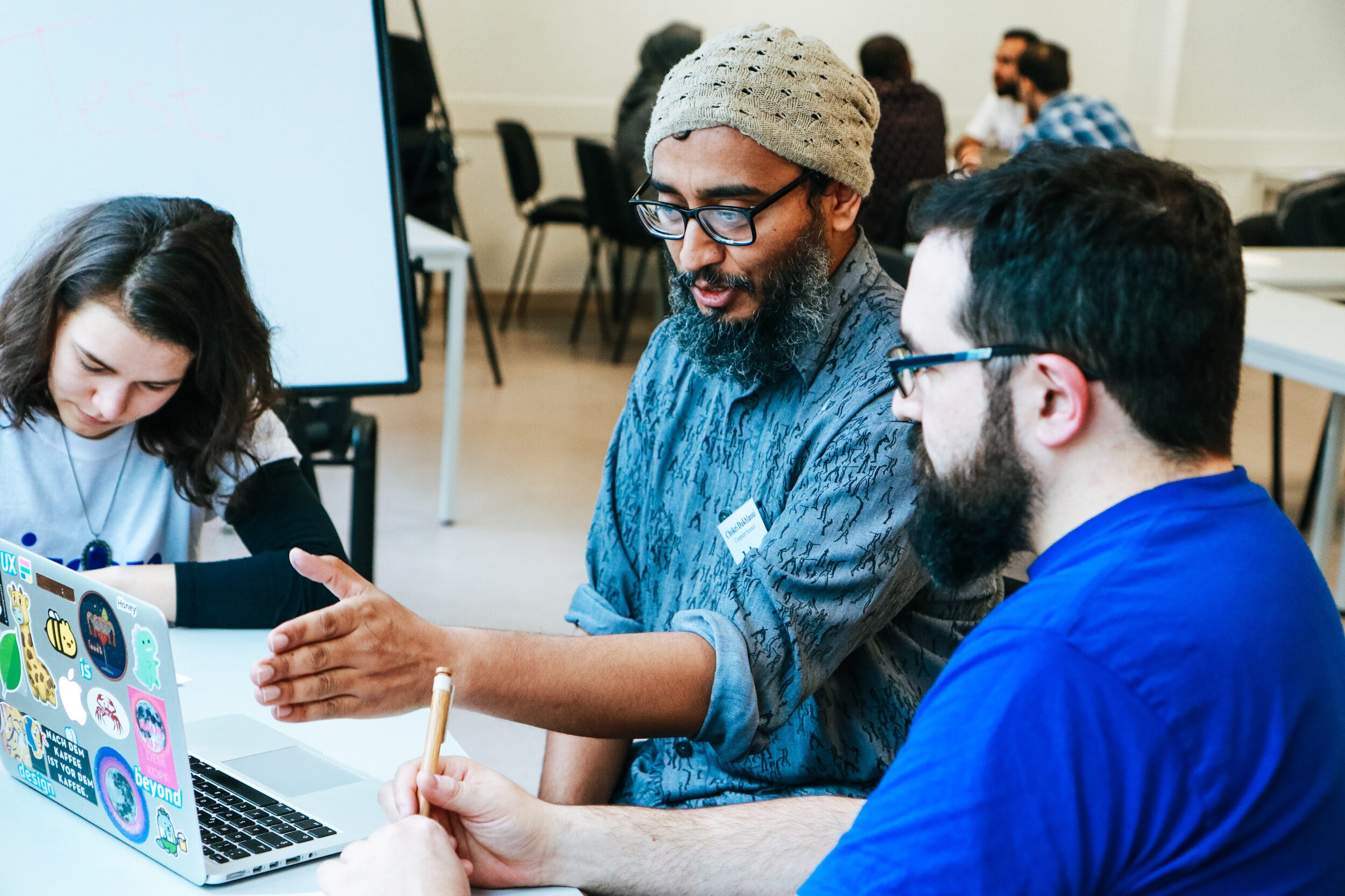Miller Center Launches Second Accelerator Focused on Enterprises Serving Migrants, Refugees, and Human Trafficking Survivors
68.5 Million People Displaced Globally
SOCAP, San Francisco, Calif., October 23, 2019—Miller Center for Social Entrepreneurship at Santa Clara University today announced its second, pioneering Social Entrepreneurship at the Margins (SEM2) accelerator, selecting 19 social enterprises serving migrants, refugees, and human trafficking survivors from nearly 100 global applicants.
“Poverty, violence and climate change are driving people from their homes and communities in record numbers,” said Kevin O’Brien, S.J., president of Santa Clara University. “We are proud to devote the resources and talents of our Miller Center toward empowering so many amazing social enterprises working to ease the burdens and challenges of this global crisis.”
Globally, there are 68.5 million people forcibly displaced from their homes – 25.5 million of those are refugees – and a record 258 million migrants, according to the United Nations Refugee Agency and the World Health Organization, respectively. The International Labour Organization estimates human trafficking is a $150 billion industry worldwide, with 40.3 million modern day slaves; 75% are women and girls.
Building on its 16 years of experience accelerating more than 1000 social enterprises in 100 countries, Miller Center will accompany the SEM2 cohort through its Global Social Benefit Institute (GSBI®) six-month online accelerator with Silicon Valley executive mentors, followed by an in-residence program delivered in partnership with the Beeck Center for Social Impact + Innovation at Georgetown University. The program will culminate at an SEM2 Investor Showcase on June 2, 2020 in Washington, DC.
Georgetown University’s Beeck Center for Social Impact + Innovation focuses on scaling promising grassroot efforts so they will ultimately change systems and institutions.
“We see this partnership with the SEM2 program as a way to showcase the importance of collaboration, policy, and future-proofing solutions. Combined with Miller Center’s history of accelerating social enterprises we’ll develop solutions that are both sustainable and truly impactful,” says Nate Wong, Interim Executive Director for the Beeck Center. “We look forward to bringing our research findings to this cohort, particularly our partnership with the World Education Services Mariam Assefa Fund focusing on understanding ways to finance training and workforce development for immigrants and refugees.”
Social enterprises selected for the SEM2 cohort can be found here.
The SEM2 cohort includes social enterprises focused on helping refugees, migrants, and human trafficking survivors become entrepreneurs and build sustainable businesses; sell fair trade products made by displaced people; provide educational guidance and prepare refugees and human trafficking survivors for employment and dignified livelihoods in society; and, improve the conditions of people awaiting asylum.
“We are inspired by these social entrepreneurs and the contributions they are making to support refugees, migrants, and human trafficking survivors,” said Thane Kreiner, Ph.D., Executive Director of Miller Center for Social Entrepreneurship. “We are applying Miller Center’s success preparing social enterprises for growth and investment in synergy with the Beeck Center’s systems-level frameworks to help the most vulnerable in our common human family. We hope that authentic impact investors will join us to ensure these organizations can scale solutions for marginalized people around the world seeking dignified livelihoods.”
The 2018 SEM accelerator lessons here illustrate that social enterprises are encountering gaps that inhibit their ability to scale; foremost among these is access to appropriate sources of funding. Based on the program, Miller Center believes models that provide dignified work are highly replicable and those that utilize technology platforms to provide needed services have the potential for significant scale.
Foundations such as the Chao Foundation/Transparent Fish Fund are early adopters and sponsored the original SEM program and this second cohort as well.
# # #
About Miller Center for Social Entrepreneurship
Miller Center for Social Entrepreneurship, located at Santa Clara University, has accelerated more than 1000 social enterprises since 2003. These collectively have improved, transformed, or saved the lives of over 400 million people in 100 countries. We help transform social ministries to more sustainable social enterprise models. We engage Santa Clara University students in research that helps social enterprises, leveraging our location in the heart of Silicon Valley and our Jesuit ambition to end poverty and protect the planet.
About Santa Clara University
Founded in 1851, Santa Clara University sits in the heart of Silicon Valley—the world’s most innovative and entrepreneurial region. The University’s stunningly landscaped 106-acre campus is home to the historic Mission Santa Clara de Asís. SCU has among the best four-year graduation rates in the nation and is rated by PayScale in the top 1 percent of universities with the highest-paid graduates. SCU has produced elite levels of Fulbright Scholars as well as four Rhodes Scholars. With undergraduate programs in arts and sciences, business, and engineering, and graduate programs in six disciplines, the curriculum blends high-tech innovation with social consciousness grounded in the tradition of Jesuit, Catholic education. For more information see www.scu.edu.
About the Beeck Center for Social Impact + Innovation
The Beeck Center is an experiential hub at Georgetown University that trains students and incubates scalable, leading edge eco-systems ideas for social change. We believe impact at scale requires the courage to think and behave differently. Our work centers on investing in outcomes for individuals and society. We equip future global leaders with the mindset to promote outcome-driven solutions, using the tools of fair finance and data + digital. We convene actors across the public, private, and civic sectors to advance new tools, frameworks, and approaches necessary to achieve these outcomes.
Media Contacts
Rhonda Brauer for Miller Center, rhonda@rbrauerconsult.com, (213) 300-2717
Deborah Lohse, SCU Media Communications, dlohse@scu.edu, (408) 554-5121


